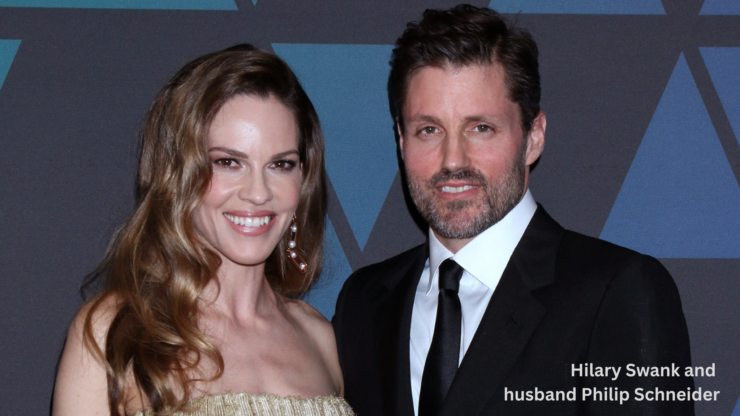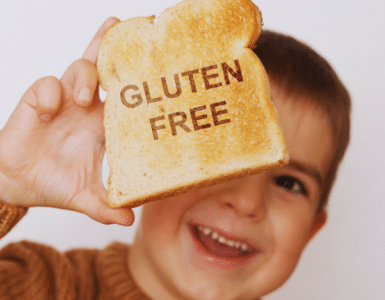Hollywood star Hilary Swank has just given birth to her first children, twins, at the age of 48. And she’s not alone – women all over the world are choosing to have children later in life.
It’s a trend that’s becoming increasingly common, as women prioritize their careers, travel, and other passions before starting a family. But it’s not all smooth sailing, and there are risks and challenges associated with having children later in life.
So, why are more and more women taking this route, and what are the pros and cons of waiting until later to become a mom? Let’s dive into the fascinating world of modern motherhood!
Let’s Wait
More and more women are delaying having kids in order to pursue their careers, travel, or just enjoy their youth before starting a family. According to data from the Centers for Disease Control and Prevention (CDC), the average age of first-time moms in the United States has been steadily increasing since the 1970s, and it now hovers around 27 years old.
Despite the stats (or perhaps because of them), more and more celebrity moms are having babies in their 40s, breaking down stereotypes and proving that motherhood is possible at any age. Stars like Halle Berry, Eva Longoria, and Nicole Kidman are inspiring other women to pursue their dreams and break the mold, whether that means waiting to have kids or becoming a mom later in life.
Swank joins other celebrity moms like Julianne Moore, Gwen Stefani, and Mariah Carey who have all had babies in their 40s. With celebrities leading the way, it’s becoming increasingly clear that motherhood can happen at any age.
The Risks
While waiting to have children can be beneficial in terms of financial stability and emotional maturity, there are also potential risks to delaying childbearing. Women over 35 face a higher risk of infertility and pregnancy complications such as gestational diabetes, preeclampsia, and cesarean delivery. Additionally, children born to older moms may have a higher risk of genetic abnormalities and developmental disorders.
Increased Risk of Infertility
Women are born with all the eggs they’ll ever have, but the quality of those eggs decreases over time. By age 35, a woman’s chance of getting pregnant in any given month drops significantly, and the risk of pregnancy complications increases. By age 40, the chance of conceiving naturally each month is less than 5%.
In fact, women over 40 are at a higher risk of miscarriage, and by age 40, the risk of miscarriage is around 25%, and continues to increase as a woman gets older.
While there are ways to increase the chances of getting pregnant, like fertility treatments or freezing eggs, this can be a difficult and emotional experience, and there can also be risks associated with either process.
Many celebrity moms have spoken publicly about their struggles with infertility. Stars like Janet Jackson and Halle Berry have opened up about their journeys to motherhood, sharing their stories of fertility treatments, miscarriages, and more. By sharing their experiences, these women have helped to raise awareness and reduce the stigma surrounding infertility, showing that it can happen to anyone, regardless of wealth or fame.
Increased Risk of Genetic Abnormalities
As women age, the risk of genetic abnormalities in their offspring increases due to the natural decline in the quality of eggs over time. Chromosomal disorders such as Down syndrome are one of the most common genetic abnormalities associated with maternal age. According to the National Down Syndrome Society, the chance of having a baby with Down syndrome increases from about 1 in 1,250 for a woman who conceives at age 25, to about 1 in 100 for a woman who conceives at age 40.
To help detect potential genetic abnormalities, prenatal testing options are available. These tests can include ultrasound, chorionic villus sampling (CVS), and amniocentesis. While these tests can be helpful in identifying potential issues, they also come with potential risks such as miscarriage.
There are celebrity moms who have had children with genetic abnormalities. Actress Sarah Jessica Parker has spoken publicly about her son’s diagnosis of a rare genetic disorder called Angelman syndrome. By sharing her story, she has helped to raise awareness and reduce the stigma surrounding genetic disorders.
Increased Risk of Pregnancy Complications
Conditions such as gestational diabetes and preeclampsia are more common in women who are over 35. These complications can lead to a need for closer monitoring during pregnancy and increased medical interventions.
While medical interventions can be helpful in ensuring the safety of both mother and baby, they also come with potential risks. For example, interventions such as induced labor and cesarean delivery can increase the risk of complications and longer recovery time.
ALSO: 4 Tips for Managing Nausea in the First Trimester
Even celebrity moms like Beyoncé have experienced difficult pregnancies. Beyoncé spoke publicly about her struggles with preeclampsia during her pregnancy with twins, which led to bed rest and an emergency C-section delivery.
Increased Risk for Mother and Child
There are potential risks to both mother and baby associated with having children later in life. For the mother, there is a higher risk of postpartum complications such as C-sections and hemorrhage. Additionally, babies born to older mothers may face a higher risk of neonatal and infant mortality.
Moreover, children born to older mothers may face long-term health risks such as developmental disorders and increased risk of chronic conditions. While the reasons for this are not fully understood, it is thought to be due to a combination of genetic and environmental factors.
Celebrity moms like Serena Williams have faced health challenges related to having children in their 40s. Williams spoke publicly about her postpartum complications following the birth of her daughter, highlighting the importance of maternal health care and support.
Conclusion
While the stories of celebrity moms can be inspiring, it’s important for women to make informed decisions about their own reproductive health and to consult with their healthcare providers about their options.
While having children later in life may be a personal choice, it’s essential to be aware of the potential risks and to take steps to ensure the safety of both mother and baby. By staying informed and seeking guidance from healthcare professionals, women can make choices that are right for them and their families. And, while the stories of celebrity moms can be powerful and inspiring, it’s essential to remember that everyone’s journey is unique and personal, and what works for one person may not work for another.
So, let’s encourage women to make informed decisions about their reproductive health and to prioritize their own well-being, with the support and guidance of healthcare providers.








Add comment